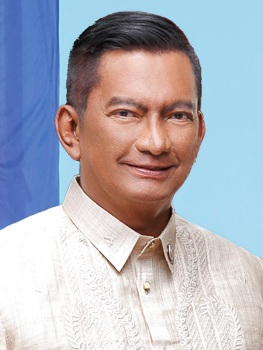House Ways and Means Chair and education reform advocate Rep. Joey Sarte Salceda (Albay, 2nd district) has introduced a reform of Republic Act No. 10533, or Enhanced Basic Education Act of 2013, which established the K to 12 system in the country. Salceda’s proposal, which he calls the “K to 12 Reform Act,” is part of Salceda’s Comprehensive Education Reform Agenda, emphasizes employability, “skills for the future,” effectiveness of learning materials, and technical and vocational competence.
“There are four main problems that my bill is trying to address: First, Filipino teenagers, according to the Programme for International Student Assessment (PISA) 2018, are among the most academically challenged students in the world. Second, K to 12 graduates are not yet employable. Third, learning materials are depressingly deficient in content and effectiveness,” Salceda said.
In the bill’s explanatory note, Salceda also cites a finding by The Commission on Audit (COA), in its 2018 audit report of the Department of Education, that the agency procured over P254 million worth of learning materials that supposedly contained significant errors and deficiencies that “rendered these instructional materials of poor quality.”
“Combine all of these issues in one picture, and the scene is alarming. As an economic policymaker, part of my job is to make this country economically attractive. Sorry to say this, but the quality of our education system makes my job extremely difficult. This country cannot compete in the age of artificial intelligence with such a poorly-trained, poorly-equipped workforce. Matalino naman ang Pilipino ‘pag dinala mo sa ibang bansa. Kaya obvious na sistema natin ang problema,” Salceda said.
The key features of Salceda’s bill are
- Emphasis on Technical and Vocational Education and Training (TVET) as a bridge to both employment and higher education;
- Ensuring that the mother tongue-based materials produced are actually in the native language of the learner, and not in a regional language that may be as foreign to her as English or Filipino;
- A workforce development plan to ensure that K to 12 graduates are employable in the country’s top employers and high-value industries;
- TVET as the default senior high school option, while maintaining the other tracks as alternatives;
- Inclusion of courses in senior high school that can be certified as skills by the Technical Education and Skills Development Authority;
- The creation of a Learning Materials Development Center under the UP College of Education to serve as a quality assurance mechanism and independent auditor of the accuracy and effectiveness of textbooks;
- Curricular deloading, with emphasis on retaining and creating courses that build skills for the future;
- Encouragement of summer internships among senior high school students.
“Under my bill, basta graduate ka ng senior high, meron ka nang work experience at TESDA certifications. Under the proposal, you won’t just carry a piece of paper saying you finished senior high school. You actually have skills that will make you employable,” Salceda added.
Citing TESDA’s certification programs, Salceda also says that “my bill will also reorient quite radically the way we think about Technical and Vocational Education. Our flawed mindset right now makes us think that you’re either a tech-voc grad or a college grad. It’s not an either-or in my bill. Tech-voc is the bridge to both college and a job if you don’t want to go to college.”
Salceda’s bill, for example, mandates that all senior high school curricula offer TESDA-certifiable courses that align with the senior high school track.
“I imagine how easy my college life would have been if, say, I was able to take TESDA’s Programming course before I entered Management Engineering. Make no mistake: Tech-Voc is solid footing for college.” Salceda said.
Following the findings of the Schools for the Future Report of the World Economic Forum, Salceda’s bill also emphasizes the integration of the following skills into the curriculum:
- Global citizenship skills including content that focuses on building awareness about the wider world, sustainability and playing an active role in the global community;
- Innovation and creativity skills, including content that fosters skills required for innovation, including complex problem-solving, analytical thinking, creativity and systems analysis;
- Technology skills, including content that is based on developing digital skills, including programming, digital responsibility and the use of technology; and
- Interpersonal skills, including content that focuses on interpersonal emotional intelligence, including empathy, cooperation, negotiation, leadership and social awareness.
“Simple lang po ang resulta ng bill ko: mas magaan ang workload ng estudyante at teacher, mas skilled ang graduate kaya mas maraming trabaho ang pwedeng kunin, at mas maganda ang kalidad ng learning material at textbook,” Salceda concluded.




